What do Americans really think about the bombing of Hiroshima and Nagasaki?
By Scott D. Sagan, Gina Sinclair | August 5, 2024
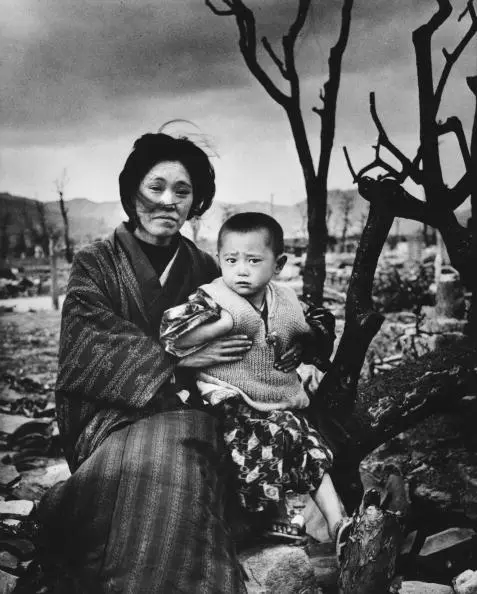 A mother and child, dressed in traditional clothing, sit on the ground amid rubble and burnt trees, Hiroshima, Japan, December 1945. On August 6, some four months previously, the United States had dropped an atomic bomb on the city--three days later a second one was dropped on Nagasaki. (Photo by Alfred Eisenstaedt/The LIFE Picture Collection via Getty Images)
A mother and child, dressed in traditional clothing, sit on the ground amid rubble and burnt trees, Hiroshima, Japan, December 1945. On August 6, some four months previously, the United States had dropped an atomic bomb on the city--three days later a second one was dropped on Nagasaki. (Photo by Alfred Eisenstaedt/The LIFE Picture Collection via Getty Images)
In mid-August 1945, within weeks of the end of World War II, Americans were polled on whether they approved of the atomic bomb attacks on Hiroshima and Nagasaki. An overwhelmingly high percentage of Americans—85 percent—answered “yes.” That level of approval has gone down over the years, with (depending on the precise wording of the question) only a slim majority (57 percent in 2005) or a large minority (46 percent in 2015) voicing approval in more recent polls.
This reduction in atomic bombing approval over time has been cited as evidence of a gradual normative change in public ethical consciousness, the acceptance of a “nuclear taboo” or what Brown University scholar Nina Tannenwald has called “the general delegitimation of nuclear weapons.” This common interpretation of US public opinion, however, is too simplistic. Disapproval has indeed grown over time, but most Americans remain supportive of the 1945 attacks, albeit wishing that alternative strategies had been explored. These conclusions can be clearly seen in the results of a new, more complex public opinion survey, conducted for this article, that asked a representative sample of Americans about their views on the bombing of Hiroshima and Nagasaki, examined alternative strategies for ending the war, and provided follow-on questions to determine how the public weighs the costs and benefits of different strategies. Scratch beneath the surface, and the American public today, as in 1945, does not display an ethically based taboo against using nuclear weapons or killing enemy civilians, but rather has a preference for doing whatever was necessary to win the war and save American lives.
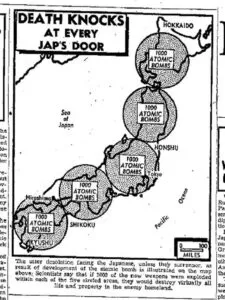 US public opinion in 1945. In November 1945, Fortune magazine published a Roper poll about the bomb that provided insights into American thinking about nuclear weapons and wartime ethics, but also revealed the strong retributive instincts and anti-Japanese sentiments in the hearts and minds of many Americans. Less than 5 percent of the public opposed the bombing, while 14 percent supported a “demonstration strike”—an initial use of the atomic bomb on an isolated target in an unpopulated area to warn Japan about the destructive power of the new weapon and only attack cities if Japan then refused to surrender. Shockingly, 22.7 percent of the public said that the US “should have quickly used many more of them [atomic bombs] before Japan had a chance to surrender.” This aggressive and vengeful impulse was widely shared among Washington leaders and the American public. Indeed, President Harry Truman wrote on August 1945 that “[t]he only language they (the Japanese) seem to understand is the one we have been using to bombard them. When you have to deal with a beast you have to treat him as a beast.” The Indiana Evening Gazette even cooly proclaimed that “Death Knocks at Every Jap’s Door” and reported that 1,000 nuclear weapons in each of the five areas shown on the map would “destroy virtually all life and property in the enemy homeland.”
US public opinion in 1945. In November 1945, Fortune magazine published a Roper poll about the bomb that provided insights into American thinking about nuclear weapons and wartime ethics, but also revealed the strong retributive instincts and anti-Japanese sentiments in the hearts and minds of many Americans. Less than 5 percent of the public opposed the bombing, while 14 percent supported a “demonstration strike”—an initial use of the atomic bomb on an isolated target in an unpopulated area to warn Japan about the destructive power of the new weapon and only attack cities if Japan then refused to surrender. Shockingly, 22.7 percent of the public said that the US “should have quickly used many more of them [atomic bombs] before Japan had a chance to surrender.” This aggressive and vengeful impulse was widely shared among Washington leaders and the American public. Indeed, President Harry Truman wrote on August 1945 that “[t]he only language they (the Japanese) seem to understand is the one we have been using to bombard them. When you have to deal with a beast you have to treat him as a beast.” The Indiana Evening Gazette even cooly proclaimed that “Death Knocks at Every Jap’s Door” and reported that 1,000 nuclear weapons in each of the five areas shown on the map would “destroy virtually all life and property in the enemy homeland.”
In the summer of 1945, American military and political decision-makers in Los Alamos and Washington discussed the possibility of a using the first atomic bomb on an isolated target, to demonstrate its destructive power to the Japanese without causing massive civilian casualties. But this “demonstration strike” option was rejected for a variety of reasons, including fears that US prisoners would be placed near the target and concerns that if the bomb did not work, the attack would increase Japanese reluctance to surrender. Instead, the atomic bomb was targeted against Hiroshima, one of the few Japanese cities that had not already been attacked by American planes dropping incendiary “firebombs.” The Japanese government did not surrender immediately. Surrender came only after both Hiroshima and Nagasaki were destroyed, and the Soviet Union entered the war, and Emperor Hirohito was told he would not be subject to war crimes trials.
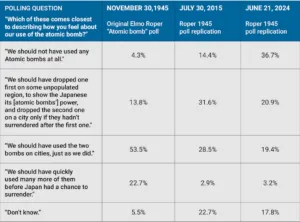
US public opinion in 2015 and 2024. A 2015 replication of the 1945 Roper poll found that 14.4 percent of Americans felt the United States should not have used atomic bombs at all, that 31.6 percent thought a bomb should have been dropped in a demonstration strike on an unpopulated area, but that almost no one (less than 3 percent) wanted to use more bombs before Japan had a chance to surrender.
For this article, we replicated the 1945 Roper poll again with a representative sample of 2,000 Americans on June 21, 2024, but then asked follow-on questions to help us determine what the public really meant when answering the survey. Such follow-on questions are necessary to understand the public’s deeper set of commitments and preferences. Did those opposing any use of the atomic bombs really support such a policy even if it meant ending the war without a Japanese government surrender? Or would they support dropping the bomb if Japan did not surrender? Would those who favor a demonstration strike today support bombing cities if the demonstration strike failed to compel Tokyo to surrender, or did they oppose atomic attacks against Hiroshima and Nagasaki under all circumstances? In short, what do Americans really think, now, about using nuclear weapons in 1945?
Options and alternatives. The percentage of respondents who said that the United States shouldn’t have used any atomic bombs at all increased from 4.3 percent in 1945, to 14.4 percent in 2015, to 36.7 percent in 2024. The percentage of respondents who preferred the demonstration strike option decreased from 31.6 percent to 20.9 percent. Public support for use of the two bombs, as the United States did in 1945, followed the same general trend, decreasing to 19.4 percent. But what do these trends reveal about US opinion? Our follow-on questions were designed to measure the public’s true willingness to use nuclear weapons and kill enemy civilians.
The respondents who chose “we should not have used any atomic bombs at all” were reminded that there was no immediate Japanese surrender and were therefore prompted with this follow up question: “The United States has warned Japan that it may face ‘prompt and utter destruction’ if it does not accept ‘unconditional surrender,’ but the Japanese government refuses to surrender. Which of the following options do you think the U.S. should choose?”
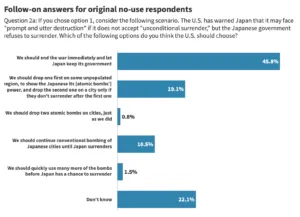
In response to this follow-on question, less than half (45.8 percent) of respondents who said they favored not using any nuclear weapons, then chose to end the war immediately and let Japan keep its government, while 19.19 percent opted for the demonstration strike option, and 10.5 percent chose to continue conventional bombing of Japanese cities until Japan surrenders.
The respondents who chose Option 2 (the demonstration strike option) in this follow-up question were then given another follow-on question to answer: “The U.S. has dropped the first bomb on an unpopulated area, but the Japanese government refuses to surrender. Which of the following options do you think the U.S. should choose?”
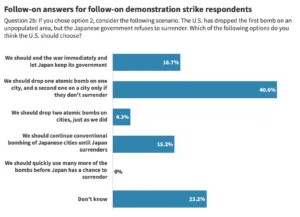
Of the respondents who chose the demonstration strike option in this follow-on survey, when given a second follow-on question, only 16.17 percent chose to end the war immediately and let Japan keep its government; 40.58 percent supported dropping one atomic bomb; and another 4.35 percent supported dropping two bombs. Meanwhile, 15.22 percent respondents wanted to continue conventional bombing of Japanese cities until the government in Tokyo surrendered.
Exploring the demonstration attack option. Those who chose the demonstration strike option in the original polling question were also given a follow-on question: “The U.S. has dropped the first bomb on an unpopulated area, but the Japanese government refuses to surrender. Which of the following options do you think the U.S. should choose?”
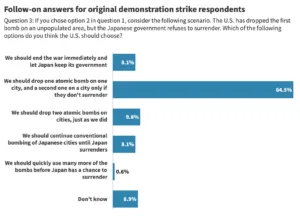
When given the follow-on question, the majority (64.45 percent) the respondents who chose the demonstration strike option in the original question 1, chose the option to drop one atomic bomb on one city, and a second one on a city only if Japan didn’t surrender. Almost 10 percent wanted to drop two bombs, however, and 8.11 percent supported more conventional bombing attacks on Japanese cities. In short, when reminded of the Japanese refusal to surrender, the strong majority (82.33 percent) of those who originally favored the demonstration strike then accepted nuclear or conventional attacks on Japanese cities.
Why these preferences? The basic finding that over 36 percent of Americans said today that the United States should not have used any atomic bombs cannot reasonably be interpreted as an indication of a widespread nuclear taboo. It may be a positive trend, but it is not a robust opinion. Indeed, less than half of those respondents maintained that position after they were reminded (as was the case in 1945) that Japan had not accepted unconditional surrender prior to the atomic bomb attacks.
Instead, our 2024 Roper Poll replication provides three valuable insights about American public opinion. First, much of US public is, in fact, still supportive of the decision to drop atomic bombs on Hiroshima and Nagasaki. Adding the answers from the different follow-on questions, reveals that 41.3 percent of all respondents were ultimately willing to use a nuclear bomb on one or more cities, and many more Americans (over 25% of all respondents) reported that they didn’t know what their preferences were in this wartime scenario. These findings are inconsistent with the existence of a nuclear taboo and underscore that large hawkish instincts lurk within the U.S. public.
A second novel finding relates to the public’s willingness to attack cities and thereby violate the basic law of armed conflict and the just war principle of non-combatant immunity. While only 41.3 percent of respondents were ultimately willing to use nuclear weapons against cities, many other respondents favored continuing the conventional bombing of Japan. Reasons given by respondents who had at first stated that they opposed nuclear attacks, but then favored continued conventional bombing once reminded that Japan had not accepted unconditional surrender included: “Because if humane tactics don’t work, then you gotta do what you Gotta do;” “Since they refuse to heed to the warning, then they deserve war;” and “If Japan doesn’t surrender than it’s time to show them what we can do.”
Altogether, adding advocates of conventional bombing with advocates of nuclear attacks, 51.25 percent of all respondents chose to attack Japanese cities and kills civilians on a massive scale. This shows that the non-combatant immunity principle, contrary to the claims of some experts, does not have strong “stopping power” at least among the public. These findings challenge the theories of scholars such as Charli Carpenter, Alexander Montgomery, Steven Pinker, Neta Crawford, and Ward Thomas, who posit that a decrease in willingness to use nuclear weapons is a result of broader acceptance of the just war principle of non-combatant immunity.
Third, the 2024 Roper Poll replication identifies a new and worrisome reason why some Americans now say they do not support the dropping of the atomic bombs in 1945. Many of the justifications of respondents who chose to end the war and let Japan keep its government even without a Japanese surrender reflected important moral preferences that are consistent with the views of the prominent just war theorist, Michael Walzer. Walzer argues the United States should have reconsidered the “unconditional surrender” demand in 1945 because Japanese leaders, unlike the Nazis, were “engaged in a more ordinary sort of military expansion, and all that was morally required was that they be defeated, not that they be conquered and totally overthrown.” (For a superb analysis of these issues see Gary Bass’ Judgement at Tokyo. ) But many responses in the 2024 Roper Poll revealed something else: a notable percentage of respondents (15.92 percent) cited their beliefs on the importance of US isolationism and avoiding any engagement in foreign affairs. Respondents noted that the United States should “stop meddeling [sic] in other countries business and take care of poverty in their own home!” or that “the US spends too much time, money, and energy on foreign affairs;” “I don’t know why we would care about japan’s government. we need to focus on our own country.” “I think we should stay out of other countries’ business.” “U.S. interference is such war wasn’t necessary at all.” One respondent even argued: “We’ve spent a lot of funds meant for the nation and Americans on unnecessary external conflicts we should have stayed neutral as we did during the first world war.”
These findings about contemporary views of the 1945 atomic bombing are consistent with previous research demonstrating that large segments of the American public are willing to contemplate the use of nuclear weapons in a war against Iran, in order to avoid US military fatalities, or against a terrorist organization planning chemical weapons attacks on the United States. The finding about interest in the demonstration strike option is also consistent with survey experiments that find that the public understands and wants to comply with the laws of armed conflict and just war doctrine (such as the non-combatant immunity norm or the “last resort” principle), but only if such compliance does not harm the achievement of traditional goals in war, such as protection of friendly forces or an increased likelihood of victory.
The American public does not hold a strong nuclear taboo and indeed, may be more of a goad than a constraint on any future president who is contemplating the use of nuclear weapons in trying wartime conditions. While the laws of armed conflict and just war doctrine may still be a constraint on nuclear use, their powers are more likely to exercised by the moral compass of individual political leaders or the legal training of senior military officers, not through the deeply problematic instincts of the American public.
Together, we make the world safer.
The Bulletin elevates expert voices above the noise. But as an independent nonprofit organization, our operations depend on the support of readers like you. Help us continue to deliver quality journalism that holds leaders accountable. Your support of our work at any level is important. In return, we promise our coverage will be understandable, influential, vigilant, solution-oriented, and fair-minded. Together we can make a difference.
Keywords: Hiroshima, Nagasaki, Roper Poll, nuclear taboo, public opinion, survey
Topics: Analysis, Nuclear Risk, Nuclear Weapons


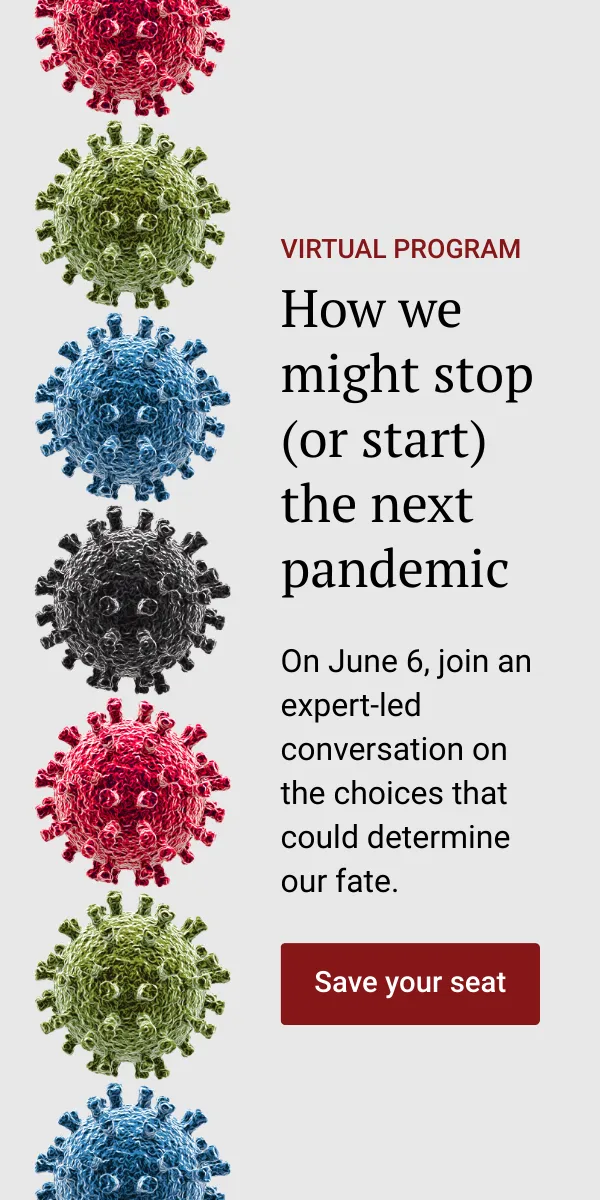

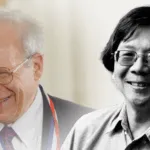

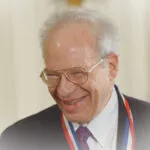
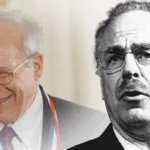
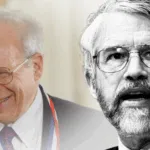
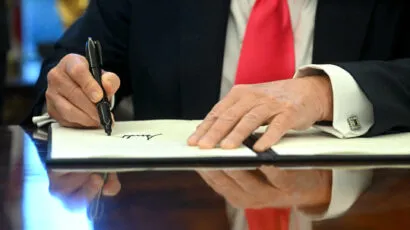
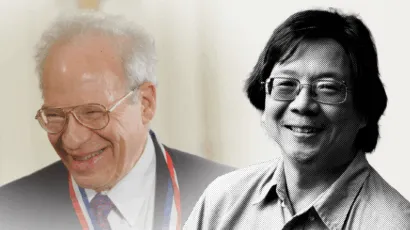
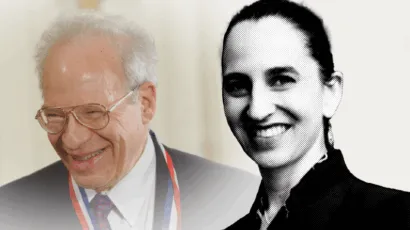

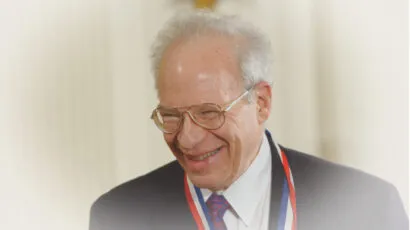
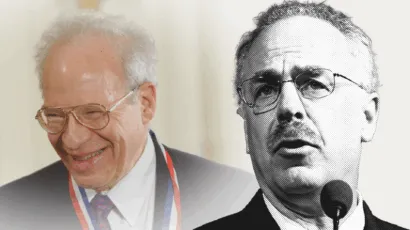
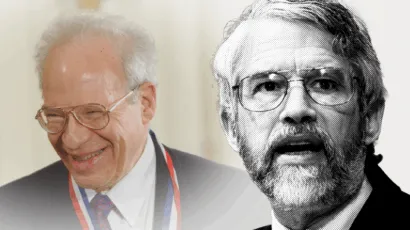
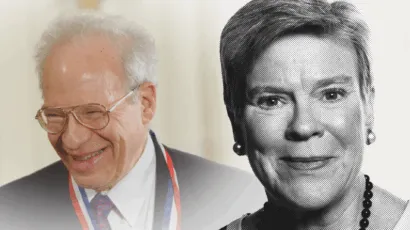
Pearl Harbor, the Bataan Death March, Tarawa, Okinawa. All of which, in casualties, would pale on the planned assaults of the main Japanese Islands. If the purpose of the article is to shame us, I will not share that blame. I suggest you acquaint yourself with Paul Fussell’s “Thank God for the Atom Bomb.”
I would probably agree with her…
To ask these questions now or even many years after the end of WW II is not realistic for any number of reasons. First, we had been attacked at Pearl Harbor. No warning. Second and so important: the Japanese were fighting to the death. Not like the Germans. Remember the Kamikazes? So if we had to invade Japan we would have lost a million more men. They were not going to give up. Period. Also, we in America did not fully understand the total effect and long-term human cost of nuclear weapons. Today, we still don’t. We are sleep walking!… Read more »
What gets lost in the atomic bombing of Japan is the daily death rate from starvation (Japan, China, Korea, etc.), city firebombing where some bombing raids killed more people than the nuclear weapons and all of the other combat. Any alternative option that delayed the fast decisive end to the war implies lots of dead people. I suspect that if one asked China or Korea, one would find almost universal agreement that atomic bombing of Japan was a great idea because it quickly ended the continuing bloodbath. This was not just a Japan-American war. . . ,
Agree
Unit 731 and so on. The Japanese Code of Bushido would not have allowed them to surrender unless they truly thought Japan would be annihilated. Part of the change in opinion is that history is so poorly taught these days in the public schools and history at the university level starts off with “the US is responsible for every evil thing that’s ever happened in the world.” How many of us would not be here now if our ancestors were killed in the invasion of the Japanese home islands. I really love how today’s “thinkers” apply their anti-military beliefs to… Read more »
Rubbish, they were ready to surrender.
It is well documented that after the Battle of Leyte Gulf, the Japanese were backed into a corner on their Homeland. The Emperor declared that he would instruct that every man, woman, and child be trained and weaponized to fight the “American Savages” at every point as they arrived. The US leaders concluded that they had already lost so many troops, and sending soldiers, sailors, and marines ashore in Japan would be a virtual bloodbath. They had the nukes and decided to end this unprovoked Pacific war at that time. It was horrible, but it worked. Mission accomplished and countless… Read more »
The selection of the survey questions seems irrationally constrained, with no explanation provided. While the option of a demonstration blast on a mountain top was certainly considered (as Jacob Brunovski later discussed with my parents) but was dismissed for its potential counter-productivity, the prime alternative to a nuclear strike was of course a massive seaborne invasion. Yet there are no survey questions reflecting that reality. Had such questions been included in the survey, along with the official projected casualty figures of subduing all hostile forces – around 600,000 allied troops and up to 6 million Japanese – respondents’ awareness would… Read more »
Japan wanted their emperor left untouched. The Americans would only accept unconditional surrender. In the end, when they started to understand Japanese culture, they left the emperor in place.
So in hindsight it was bad judgement, the bombs weren’t necessary.
Very disappointing to see handwaving arguments here about the militaristic Japanese and the supposed US invasion. Most of Truman’s generals advised him not to do it. Here is a sample of their views: The Japanese had, in fact, already sued for peace. The atomic bomb played no decisive part, from a purely military point of view, in the defeat of Japan.— Fleet Admiral Chester W. Nimitz, Commander in Chief of the U.S. Pacific Fleet, [101]The use of [the atomic bombs] at Hiroshima and Nagasaki was of no material assistance in our war against Japan. The Japanese were already defeated and ready to… Read more »
When the United States dropped the atomic bombs on Japan, we dropped the nuclear age on the entire world. What most people don’t realize is how many Americans have suffered and died as a result of nuclear weapons. (I was surprised to learn this when I began reading about nuclear history and policy several years ago.) This aspect of the story might change our perspective, or at least give our opinions sturdier legs to stand on. American perceptions of the bomb were shaped by the post-war public information campaign that is the basis for traditional nuclear history, but there is… Read more »
What many Americans misunderstand is that they think the debate over the right and wrong of the atomic bombings ended with World War II.
As noted at the end of Wikipedia, the U.S. was the only country to use the atomic bomb, and it is still criticized by Russia and others. It is still used as material for dictatorships to claim that the U.S. is evil.
https://en.wikipedia.org/wiki/Debate_over_the_atomic_bombings_of_Hiroshima_and_Nagasaki